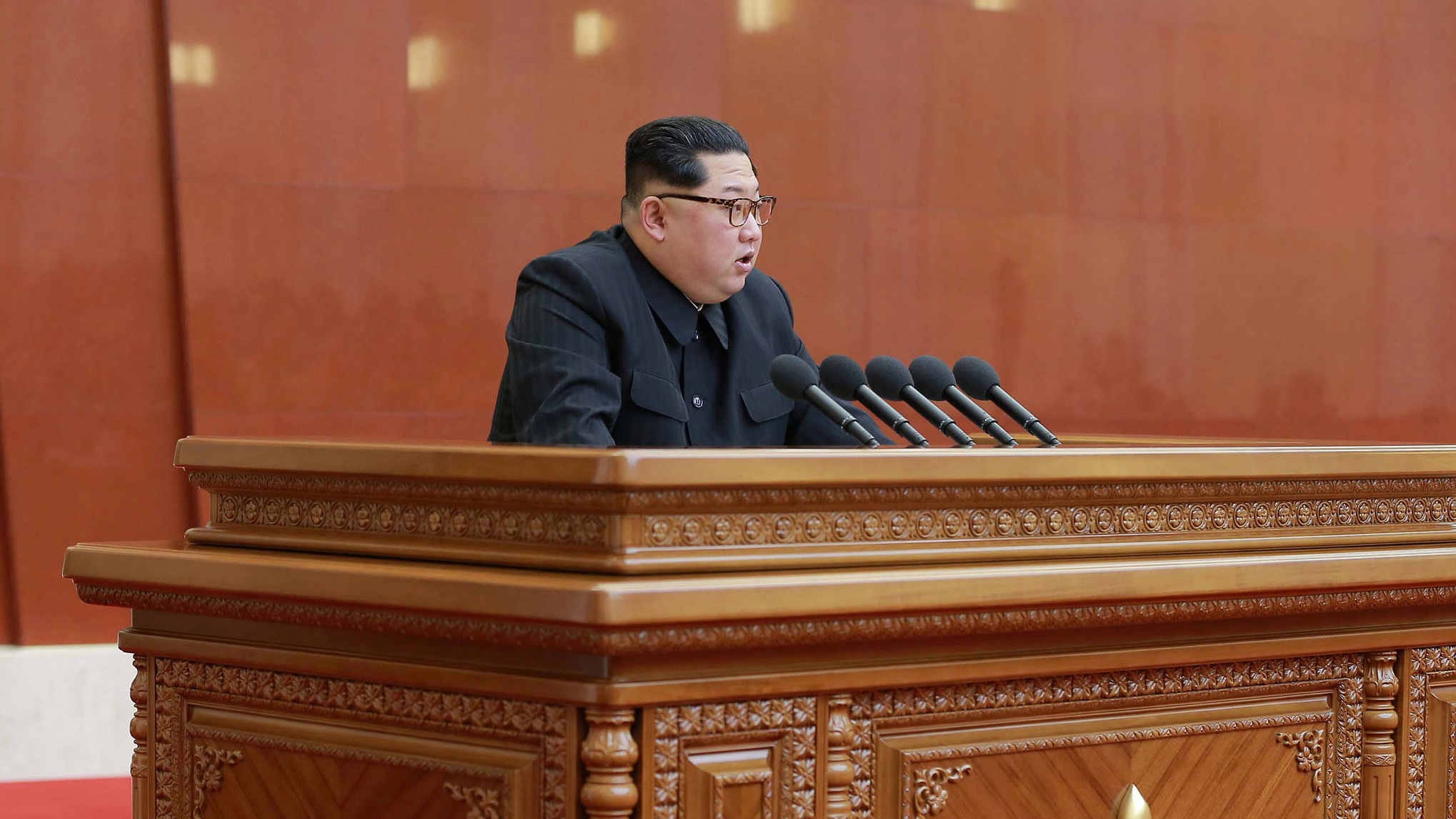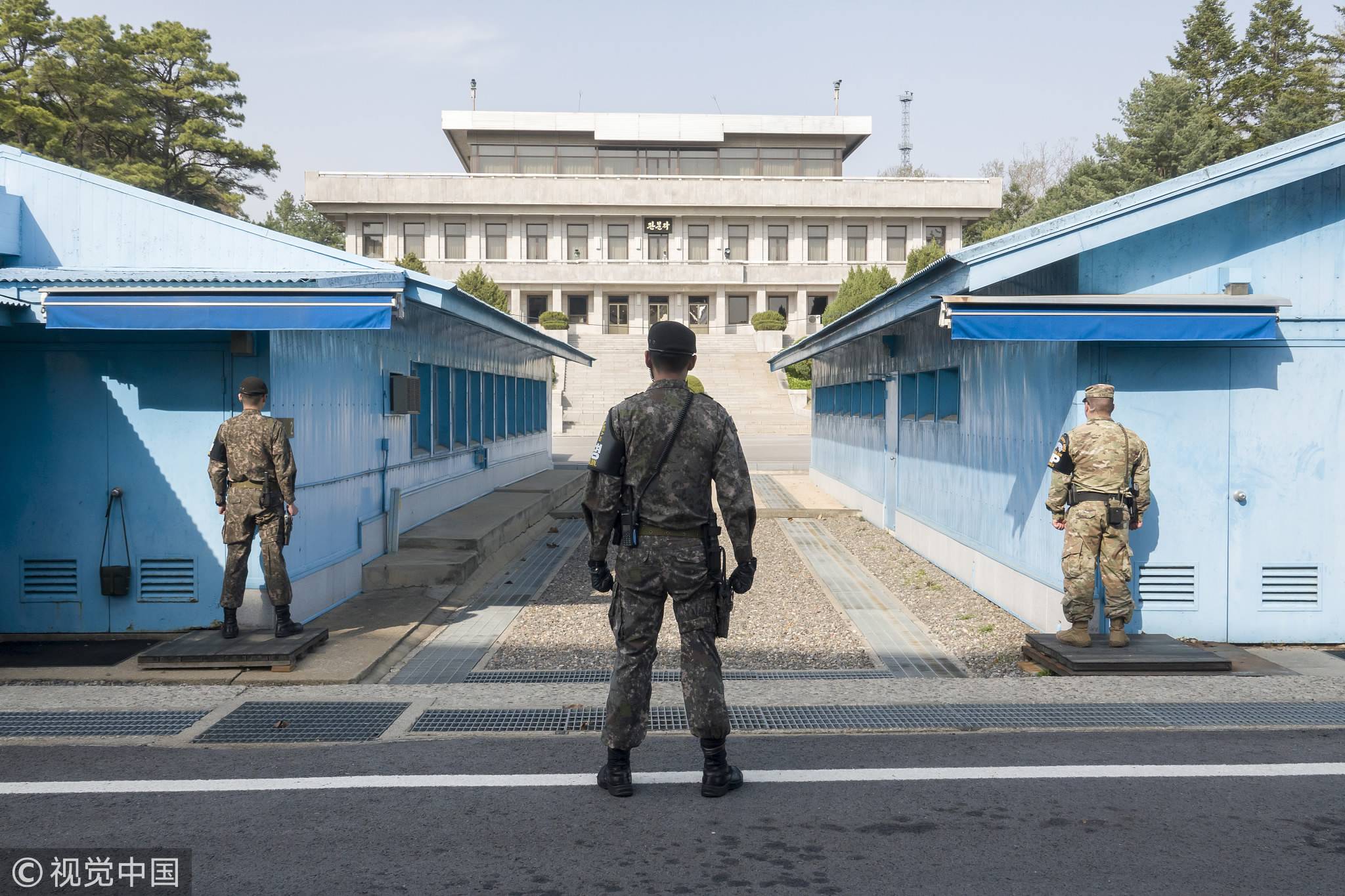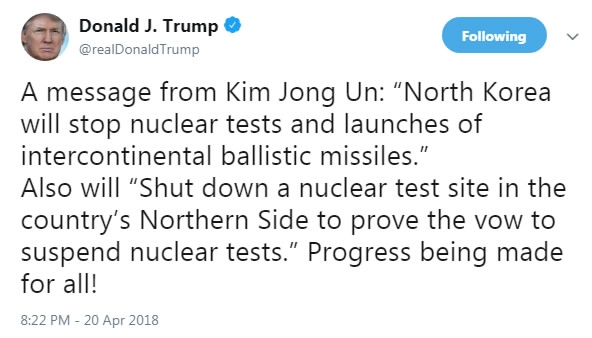
Opinions
23:26, 21-Apr-2018
Experts: DPRK has made its move; the ball is in America’s court now
CGTN

The whole world is wondering how President Donald Trump will persuade the Democratic People's Republic of Korea (DPRK) leader Kim Jong Un into denuclearization at their upcoming historical meeting, however, a major step was taken on Friday by Kim himself. According to the Korean Central News Agency (KCNA), the DPRK will immediately suspend nuclear and inter-continental ballistic missile tests.
Instead, the country’s mission has changed from developing military power to “concentrating all efforts on building a powerful socialist economy.” To achieve this, the DPRK will “create a favorable international environment” and open active talks and dialogues with “neighboring countries and the international community.”
Since PyeongChang 2018 Olympic Winter Games, there have been constant positive signals regarding the denuclearization of the Korean Peninsula and meetings have been set up between key relevant parties. But no one expected that solid progress would be made before the inter-Korean summit talks, especially given the fact that the DRPK traditionally has never made any concessions regarding its nuclear program.
According to Robert E. Kelly, professor of Political Science at Pusan National University, the DPRK’s decision might have been made because of its own worries about nuclear security and pressure from China.

ROK soldiers and a US army soldier (R) watching the DPRK at the truce village of Panmunjom in the demilitarized zone (DMZ), where the inter-Korean summit will be held, April 18, 2018. /VCG Photo
ROK soldiers and a US army soldier (R) watching the DPRK at the truce village of Panmunjom in the demilitarized zone (DMZ), where the inter-Korean summit will be held, April 18, 2018. /VCG Photo
In his opinion, concerns for nuclear safety might be an important driver because the test site that the DPRK has decided to close had massive explosions last year. Also, China has pushed the DPRK a lot on the nuclear issue, worrying that tensions may escalate further.
During the Xi-Kim meeting at the end of March, both parties expressed their willingness to actively engage in the denuclearization process of the Korean Peninsula. Although suspension is not the same as dismantlement, the announcement still shows the DPRK’s commitment and efforts to achieve a peace deal in the coming meetings.
China, the US and the Republic of Korea (ROK) have welcomed the decision. But Japan has expressed their suspicion, saying it will not give up its maximum pressure campaign just yet and will “keep a close eye on developments.”

Trump welcomes Kim's decision on Twitter
Trump welcomes Kim's decision on Twitter
In 1994, Bill Clinton signed a binding deal called “Agreed Framework” with the DPRK regarding its nuclear weapon plan, which forcefully eased the escalating tension during that period. The Clinton administration has tried to strike a more comprehensive peace deal but failed. When the DPRK announced its withdrawal from the “Nuclear Nonproliferation Treaty” in 2003, the “Agreed Framework” was officially lost to history. In 2012, only a month after signing the “Leap Day Agreement” with Obama, in which the DPRK agreed to halt its Yongbyon nuclear power plant operations, the DPRK threatened to launch a satellite.
However, on this occasion the DPRK has made its move towards a peaceful Korean Peninsula, and the ROK has also announced a wish to end the Korean War by signing a formal peace treaty. Now the ball is in America’s court.
Professor Kelly thinks that the “real issue going forward is implementation.” He hopes that the coming summits can nail down “specific implementation and sequencing,” and “generate enough strategic trust that we can actually push through the issues that in the past have slowed down talks.”
Professor Kelly concluded on a positive note that even if the hawks in America have some doubts, if they “actually come to the summit and make concessions, there will be room for a breakthrough.”

SITEMAP
Copyright © 2018 CGTN. Beijing ICP prepared NO.16065310-3
Copyright © 2018 CGTN. Beijing ICP prepared NO.16065310-3